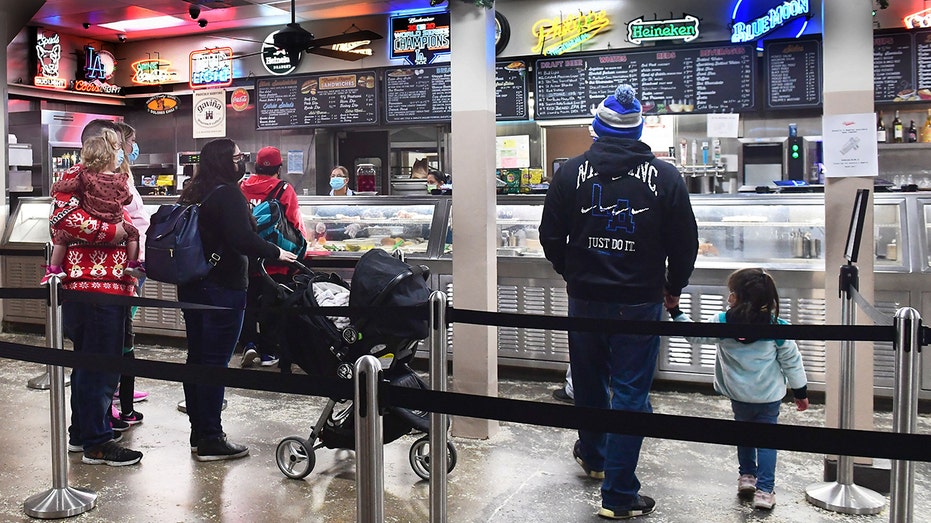Hot inflation erasing Americans' wage gains, analysis shows
Only one of 13 biggest companies pay living minimum wage
Inflation costing U.S. households $3,500: Study
Tennessee Sen. Marsha Blackburn talks inflation, President Biden's spending bill, and COVID-19 on 'Maria Bartiromo's Wall Street.'
The hottest inflation in nearly four decades is eroding wage gains for a majority of Americans working at the largest and most profitable companies in the country, according to a new analysis.
The findings from the Brookings Institute, a centrist think tank, found that soaring inflation has erased at least half of the average wage gains for frontline workers employed by 13 of the largest and most profitable retail, grocery and fast-food companies in the U.S.
WHERE ARE SURGING CONSUMER PRICES HITTING AMERICANS THE HARDEST?
While all but two of those 13 companies increased pay – sometimes significantly – for their employees since January 2020, inflation has risen faster: In November, the government reported that consumer prices jumped 6.8% from the previous year, the fastest pace in June 1982, when inflation hit 7.1%.

People wait in line to order at Philippe's, a downtown Los Angeles restaurant in business since 1908 famed for its French Dipped Sandwich, in Los Angeles, California, on Dec. 10, 2021. (Photo by FREDERIC J. BROWN/AFP via Getty Images / Getty Images)
Compared to January 2020, inflation has risen nearly 8%, according to the Brookings analysis. At the same time, wages have climbed much slower, at an average pace of about 3%. Without inflation, which weakened consumers' buying power, the average pay increase would have been 10%.
For instance, the analysis shows that Kroger raised its hourly wages from $15 per hour in early 2020 to $16.25 per hour in October 2021 – a difference of $1.25 per hour in nominal terms, or about an 8% raise. But due to inflation, Kroger employees would need to earn $16.08 in October 2021 in order to have the same purchasing power they did more than one year ago. That means the real price increase for Kroger workers is just 17 cents an hour in October, a raise of just 1%.
"Over the course of a month, this difference adds up," the analysis said. "For a full-time Kroger employee working 36 hours per week, a $1.25 per hour nominal increase equates to a monthly increase of $180. Adjusted for inflation, the real monthly pay increase for this Kroger worker is less than $25."
GET FOX BUSINESS ON THE GO BY CLICKING HERE
The actual "living wage" – which allows a full-time worker in a household with two working adults and two children to afford only the most basic necessities with nothing left for savings – is $17.70 per hour after adjusting for inflation. Of the 13 companies analyzed, which included Amazon, Walmart, Starbucks, Macy's, Chipotle, McDonald's, Target, CVS, Walgreens, Kroger, Best Buy, Gap and Lowe's, only Amazon paid a living wage.

Amazon (AP Photo/Bebeto Matthews, File / AP Newsroom)
Amazon in January 2020 paid its workers $15.75 per hour; it gave a real raise of 10% since then when accounting for inflation, giving workers a new salary of $18.50.
Walmart offered the second-highest hourly wage: In January 2020, it paid workers $14 per hour. It provided a real wage increase of 9% in October 2021, paying workers $16.40 per hour. However, the retail giant simultaneously ended its quarterly bonus, which averaged $1,400 in 2020. Accounting for the bonus loss, the real wage increase was just 2%.
The 13 companies combined employ more than 5 million Americans.





















